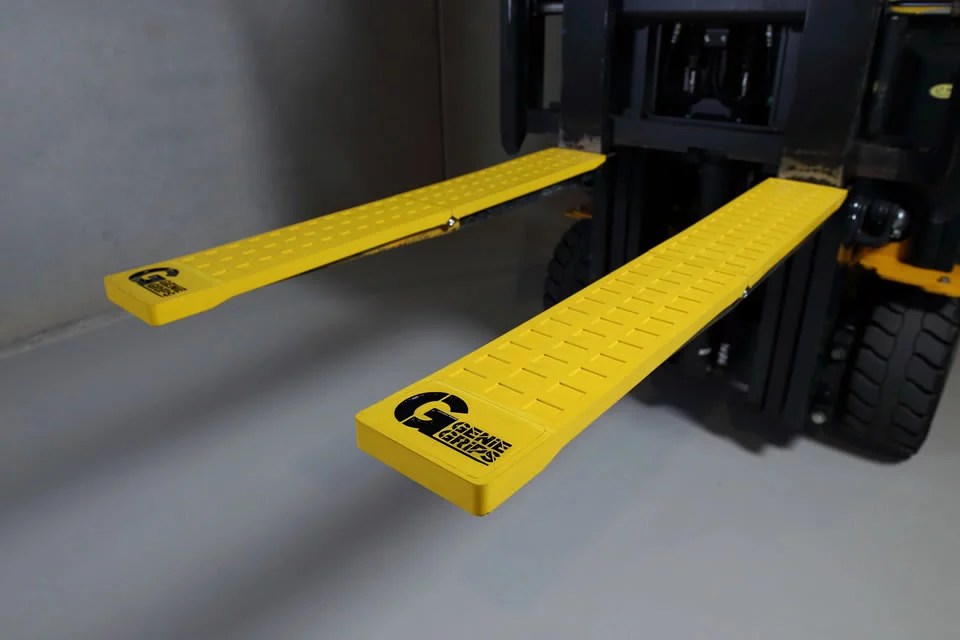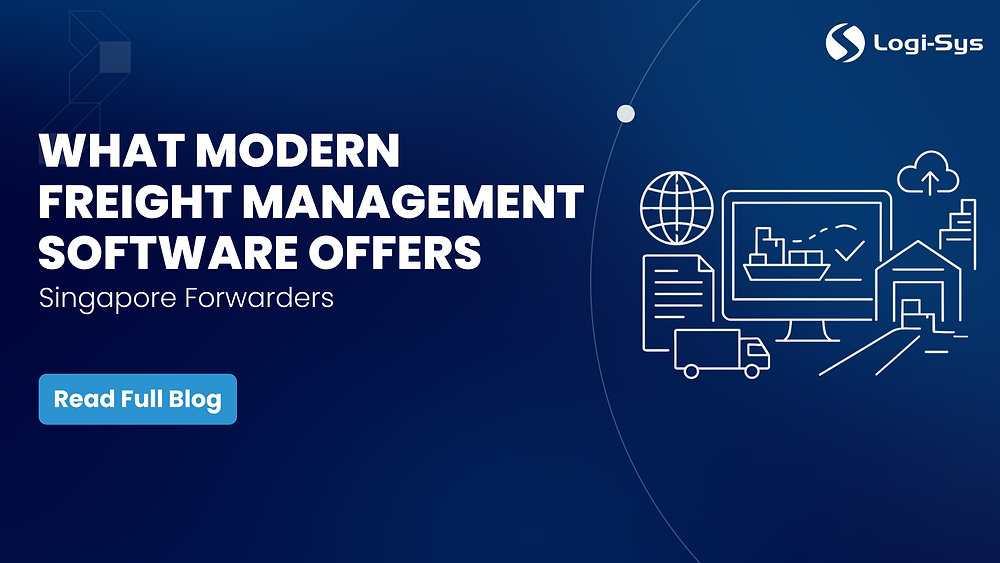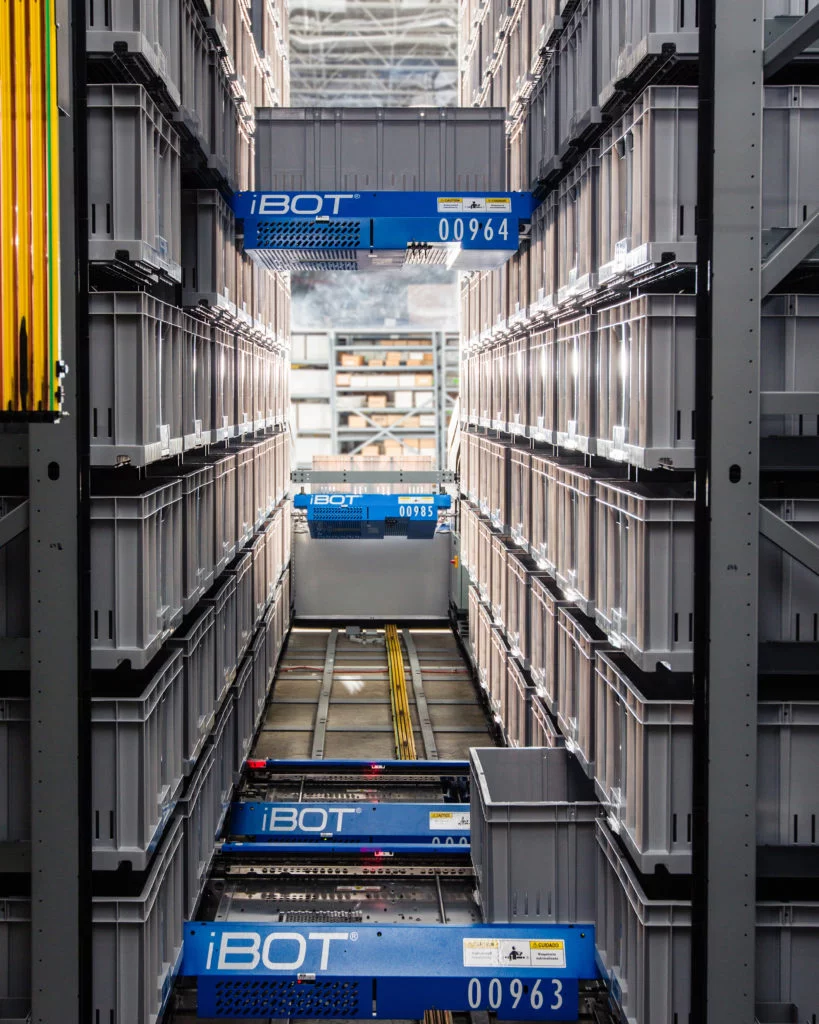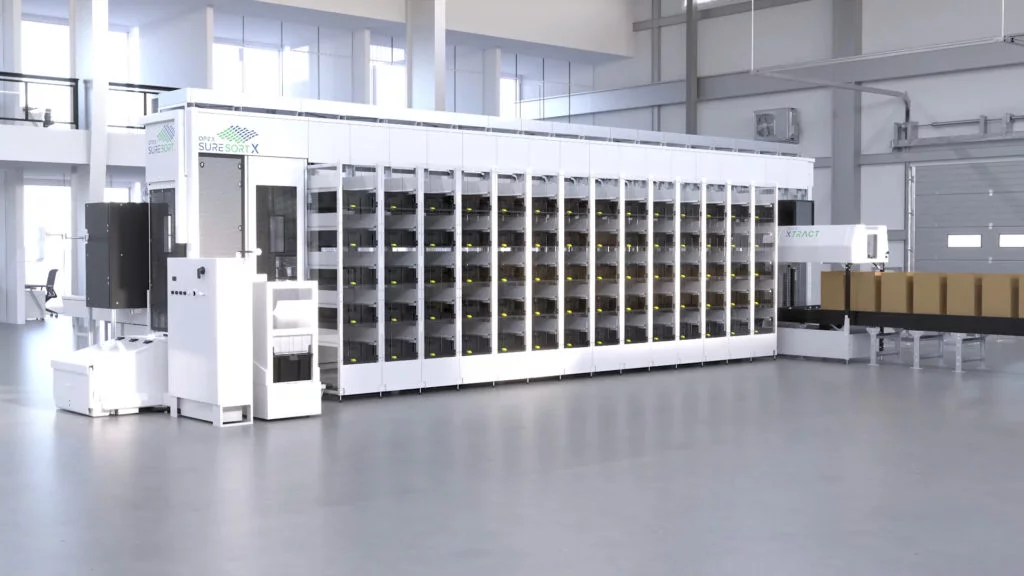Cross Point Business Park in Coventry, UK, is home to a new multi-user DC featuring a high degree of automation equipment. David Priestman took a look.
Teenage girls go mad for the beauty and make-up retailer Sephora – I have first-hand knowledge of that! With 34000 products the company requires a fast-moving third-party logistics omnichannel operation that manages both ecommerce plus deliveries to the seven UK stores every other day. 30% of UK consumer purchases are now made online.
DHL Supply Chain provides this nationwide service from Coventry over three mezzanine floors of storage, picking, packing and despatch. With an average of 7000 consumer orders a day the ecommerce operation is busy all afternoon and evening. From the inbound area all products are checked, scanned-in and put away. The warehouse control and inventory management process is data intensive. DHL manage that as well as constant analysis of the warehouse layout, looking at fast-moving items and juggling the varying demand for beauty products, subject to swings in trends and loyalties. This enables products to be stored in high or low priority areas.
Pick of the Bots
The picking operation makes good use of ‘Chuck’ ‘follow me’ robots (pictured, top). 45 of them are leased from Ocado (OIA). The Chucks are used for building the customers’ orders, using software developed by OIA. The software tells pickers what cardboard boxes should be used for each order. The bot then drives along the pre-determined route and knows where to go, leaving the (human) picker to simply take each item, scan and place in the right box. Each Chuck is named after a famous singer, with my favourite being ‘Bowie’, which was taking a well-earned rest when I visited.

DHL has cleverly built its own automated packaging machines here that close, glue and label each completed box lid, handling 60% of the ecommerce packages here that are taken by conveyor to outbound. Before the consumer changes her mind, no doubt.
Hot SKUs
DHL Supply Chain (just one part of the global behemoth) has 180,000 employees, 1600 DCs in 50 countries and a 3PL market share of 6%. In the UK it operates 5000 lorries and vans, 450 DCs with 36,000 staff. “Global trade is still growing and is the life blood of our expansion,” UK & Ireland CEO Saul Resnick states. “Retail is in a state of flux. They need us to be fast and innovative. We offer them enterprise diversity without the logistics footprint.”
The company is committed to automating its warehouse processes as much as possible. Tim Tetzlaff is its head of Digitalization and Automation. “Innovation is only real when it is scaled,” he says. Warehouse space is at a premium, as is labour, and customer expectations continue to rise. Tetzlaff’s role is to oversee the selection of technology and then scale it – picking bots, goods-to-person systems, AMRs, AI and more. Ideas lead to research then proof-of-concept, productization, commercialization and finally the modular standardization of all automation for rolling out globally.
Reaching Out
Boston Dynamics new ‘Stretch’ bot (pictured, below) unloads pallets, lifting boxes on to conveyors. It constantly photographs packages and processes these to understand what is next and the trajectory of each manoeuvre. With a weight limit of 23kg it is being tested by DHL for use cases. With 10 currently deployed, the goal is to operate 1000 of them by 2030. Faster than a human at 600 cases per hour, it will replace ‘back-breaking’ work in (often) cold environments.

“We have a vision on where we allocate our labour; approximately 25% on putaway and replenish, 35% picking, 10% packing,” Tetzlaff explains. “It’s not about replacing people but changing their roles from strenuous, repetitive physical tasks, to managing robots. Managers and planners oversee both people and bots, using data for insights on-site. We want to be the best integrator of people, bots, IT and analytics for flexible stability, seamlessly integrating tech and data to continually and dynamically optimise operational service delivery.” Now that would be modern beauty.

























